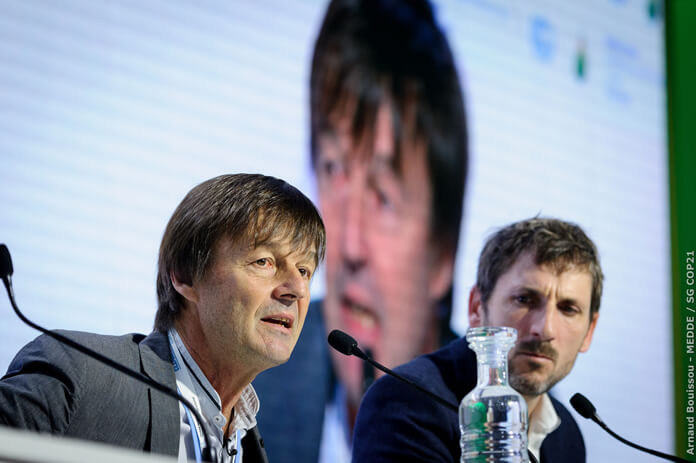The new French president caused a stir in the corporate community when he appointed France’s most famous environmental activist (and starch opponent of nuclear power, pesticides and GMOs) as the country’s environmental minister. Some are wondering if it’s to make real changes – or just for show?
Meet Nicolas Hulot

Hulot is easily the country’s most well-known environmental activist. He hosts his own television show, regularly attacking the use of pesticides, nuclear power and even capitalism as a whole saying “Our model is not sustainable”.
Hulot originally supported the far-left opponent of Macron Jean-Luc Melenchon and although he previously worked with other politicians as an environmental advisor, he has never officially signed on for the job. Some believe this is because he believes he may be able to actually make progress with Macron, rather than be a showpiece for the government.
Is Macron just trying to woo voters?
It maybe strange that Macron appointed someone far more left than his own centralist views. As well, the new president and Hulot disagree on issues such as free trade and other more “market friendly” ideas. In comparison to the rest of Macron’s cabinet choices, Hulot is also more left-leaning and starchy contrasting to the nominee for prime minister, Edouard Philippe, who worked as a lobbyist for French nuclear energy group Areva from 2007 to 2010.
While some companies are stressing over what Hulot’s appointment could mean for environmental regulations, others wonder if it’s just a political gesture by Macron to lure young leftist voters ahead of the parliamentary elections. The new president’s party En Marche must secure a victory in the French parliamentary election two weeks from now to put his agenda into place. At the moment, attracting the young left vote has been difficult.
The future of France’s nuclear energy

Since the appointment of Hulot, shares of France’s state-owned nuclear group EDP dropped almost 7 percent. People are afraid of Hulot’s intentions about nuclear, which could include closing power stations, refusal to extend existing reactors and financial limitations.
But if we look closely at Macron’s promises during he campaign, Hulot seems like a very reasonable choice. Today, nuclear power provides about three-fourths of France’s electricity today. Macron pledged to cut that to 50 percent by 2025. Perhaps the confusion by the appointment means that people didn’t really think he meant it?
The affect of Hulot’s appointment on Germany and EU
How does Hulot’s appointment affect Germany and the EU? One big factor may be the upcoming EU level vote for the reauthorization of the Monsanto pesticide glyphosate. Some are unsure how much power Hulot will actually have and perhaps he is just “ecological oasis in a desert” according to Suzanne Dalle, an environmental activist for Greenpeace France. “We don’t know if he will get the power he needs to put in place interesting [policy measures] for the environment,” she added.









